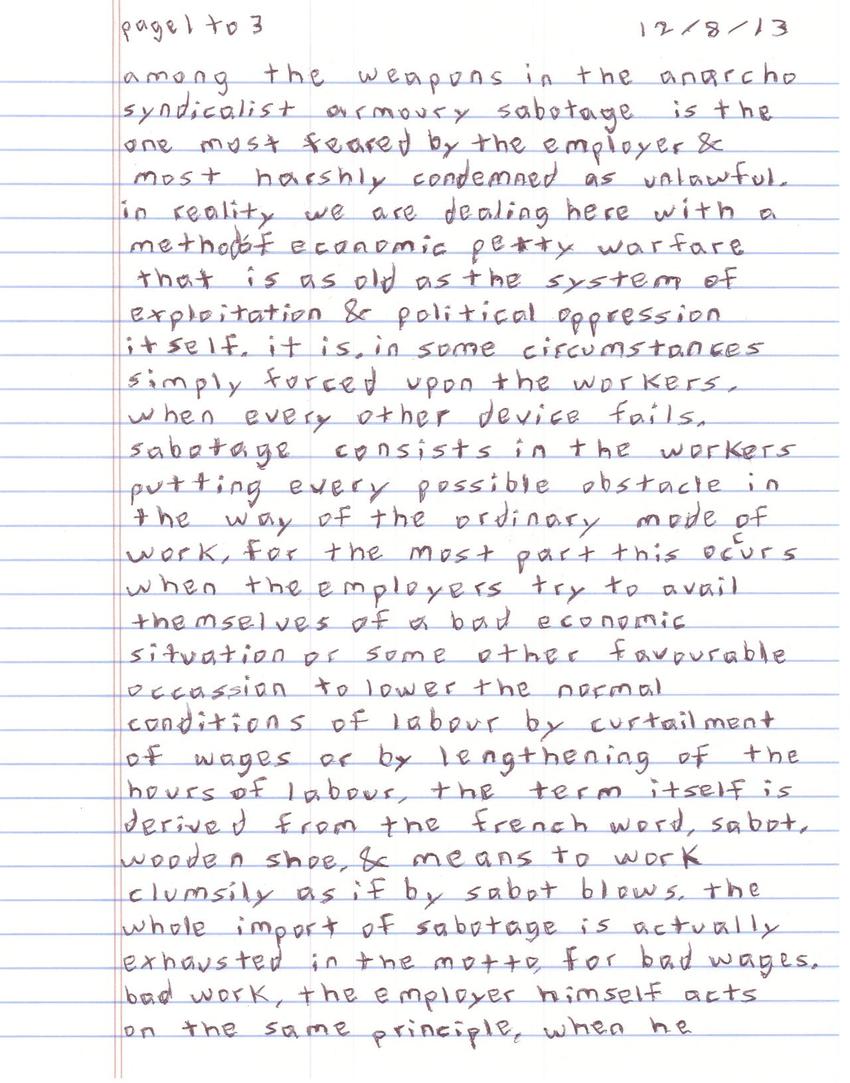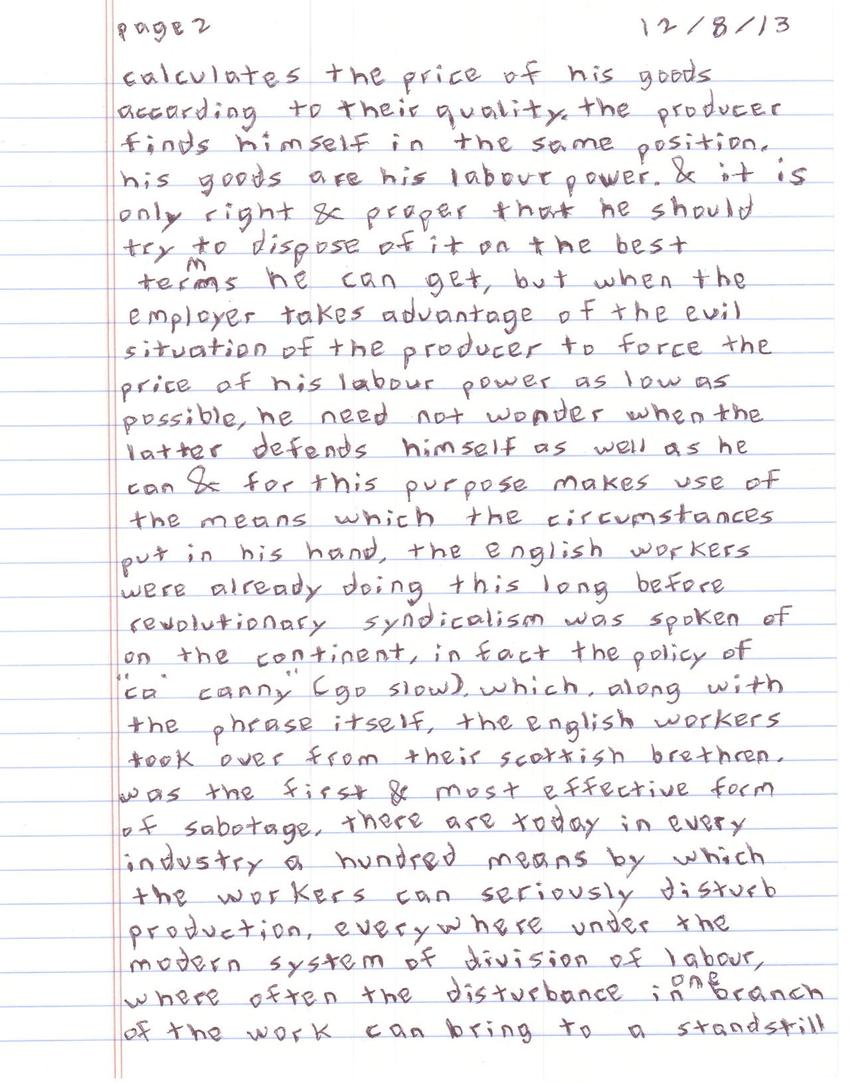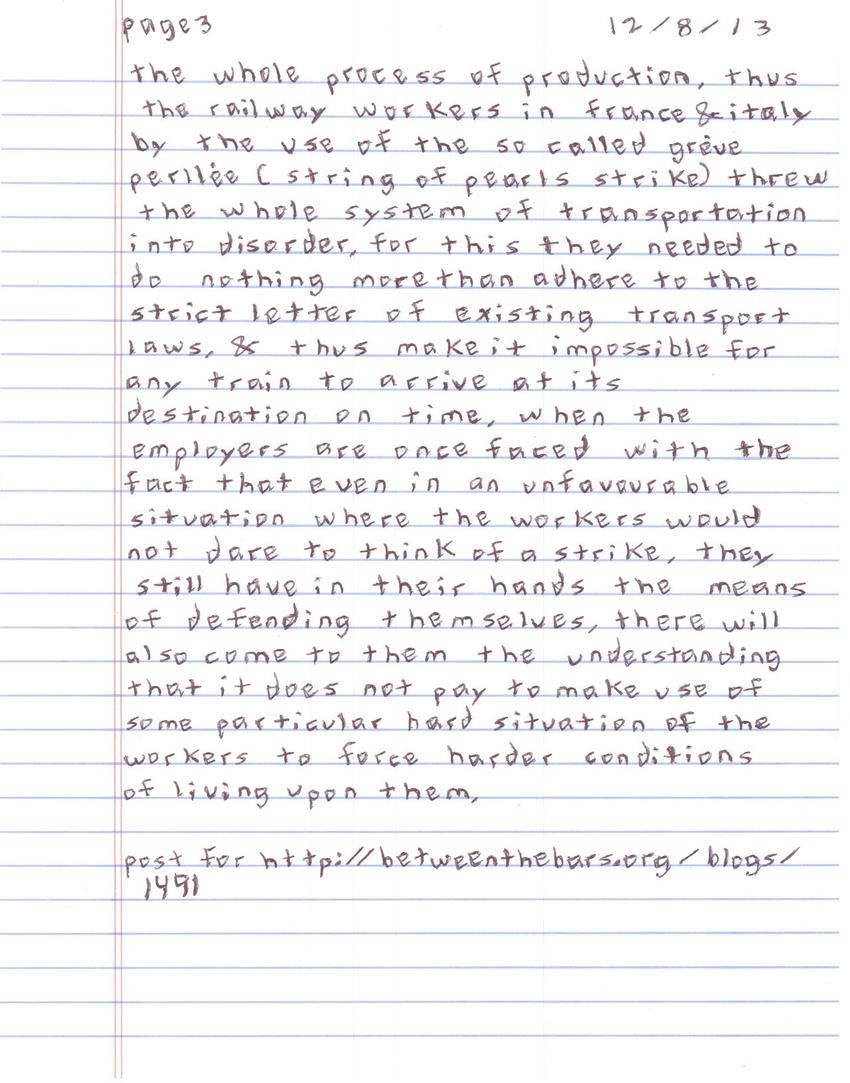
Transcription
12/8/13
Among the weapons in the anarchosyndicalist armory sabotage is the most feared by the employer and most harshly condemned as unlawful. In reality, we are dealing here with methods of economic, petty warfare that is as old as the system of exploitation and political oppression itself. It is, in some circumstances, simply forced upon the workers. When every other device fails, sabotage persists in the workers, putting every possible obstacle in the way of the ordinary mode of work.
For the most part, this occurs when the employers try to avail themselves of a bad economic situation or some other favorable occasion to lower the normal conditions of labor by curtailing wages or by lengthening the hours of labor. The term itself is derived from the French word sabot, wooden shoe, and means to work clumsily as if by sabot blows. The whole import of sabotage is actually exhausted in the motto for bad wages, bad work. The employer himself acts on the same principle when he calculates the price of his goods according to their quality. The producer finds himself in the same position; his goods are his labor power. And it is only right and proper that he should try to dispose of it on teh best terms he can get.
But when the employer takes advantage of the civil situation of the producer by forcing the price of his labor power as low as possible, he need not wonder when the latter defends himself as well as he can and, for this purpose, makes use of the means which the circumstances put in his hand. The English workers were already doing this long before revolutionary syndicalism was spoken of on the continent. In fact, the policy of "co' canny" (go slow), which along with the phrase itself, the English workers took over from their Scottish brethren. It was the first and most effective form of sabota.
There are today in every industry a hundred means by which the workers can seriously disturb production. Everywhere under the modern division of labor, where often the distribution in one branch of work can bring to a standstill the whole process of production. Thus the railway workers in France and Italy by the use of the so-called greue perilee (string of pearls strike) through the whole system of transportation into disorder. For this, they needed to do nothing more than adhere to the strict letter of existing transport laws and thus make it impossible for any train to arrive at its destination on time.
When the employers are faced with the fact that even in an unfavorable situation where the workers would not dare think of a strike, they still have in their hands the means of defending themselves. There will also come to them the understanding that it does not pay to make use of some particularly hard worker situations to force harder conditions of living upon them.
post for http://beteweenthebars.org/blogs/1491
Other posts by this author
|
2023 aug 15

|
2023 jan 19

|
2022 mar 28

|
2022 feb 10

|
2021 dec 19

|
2021 nov 5

|
More... |




Replies